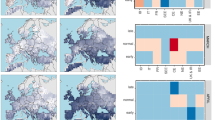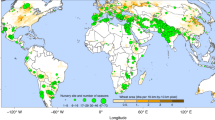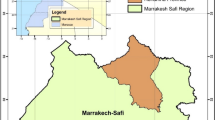Abstract
Global warming is characterised by shifts in weather patterns and increases in extreme weather events. New crop cultivars with specific physiological traits will therefore be required if climate change is not to result in losses of yield and food shortages. However, the intrinsic uncertainty of climate change predictions poses a challenge to plant breeders and crop scientists who have limited time and resources and must select the most appropriate traits for improvement. Modelling is, therefore, a powerful tool to identify future threats to crop production and hence targets for improvement. Wheat is the most important crop in temperate zones, including Europe, and is the staple food crop for many millions of humans and their livestock. However, its production is highly sensitive to environmental conditions, with increased temperature and incidence of drought associated with global warming posing potential threats to yield in Europe. We have therefore predicted the future impacts of these environmental changes on wheat yields using a wheat simulation model combined with climate scenarios based on fifteen global climate models from the IPCC AR4 multi-model ensemble. Despite the lower summer precipitation predicted for Europe, the impact of drought on wheat yields is likely to be smaller than at present, because the warmer conditions will result in earlier maturation before drought becomes severe later in the summer. By contrast, the probability of heat stress around flowering is predicted to increase significantly which is likely to result in considerable yield losses for heat sensitive wheat cultivars commonly grown in north Europe. Breeding strategies should therefore focus on the development of wheat varieties which are tolerant to high temperature around flowering, rather than on developing varieties resistant to drought which may be required for other parts of the world.
Similar content being viewed by others
Article PDF
Author information
Authors and Affiliations
Corresponding author
Rights and permissions
About this article
Cite this article
Semenov, M., Shewry, P. Modelling predicts that heat stress and not drought will limit wheat yield in Europe. Nat Prec (2010). https://doi.org/10.1038/npre.2010.4335.1
Received:
Accepted:
Published:
DOI: https://doi.org/10.1038/npre.2010.4335.1



